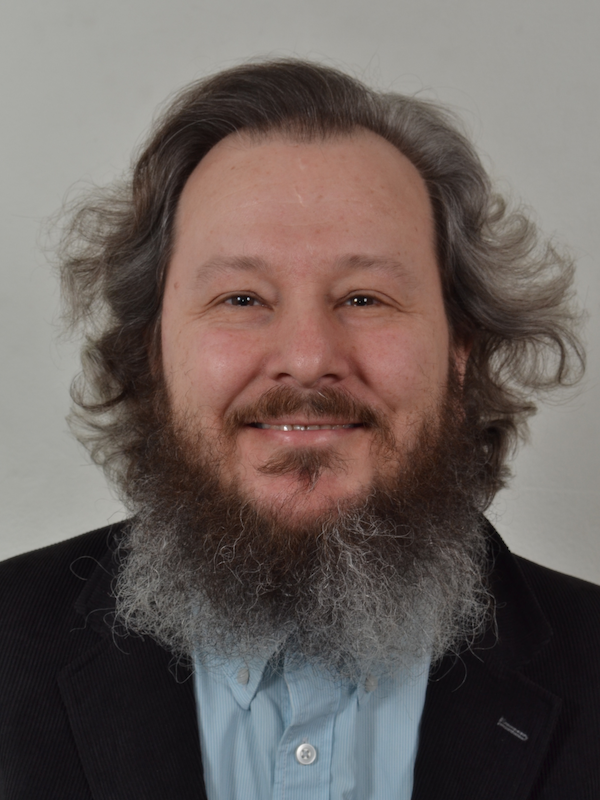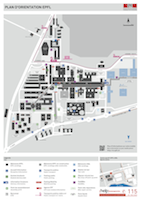Go to
Andre Inacio Reis
Bringing technology information into early steps of logic synthesis
 Associate Professor
Associate Professor
Institute of Informatics
Universidade Federal do Rio Grande do Sul (UFRGS)
Porto Alegre, RS, Brazil
Friday, 29 September 2017 at 14:40 in room BC 420
Abstract:
Logic synthesis most powerful transformations occur at early steps, that abstract target technology information. At the same time, most design costs are caused by technology issues. In this talk we discuss how to bring technology information into early steps of design flow. Our proposal is based on some enablers, including: (1) Use of placed AIGs, with explicit inverters, (2) Using KL-cuts as a tool for logic aware partitioning, (3) Treating logic computation and logic (signal) distribution distinctly, and (4) relying on global timing budget expressed through local design constraints (SDC files). Based on these enablers we describe a new design flow, that has novel design problems aiming at seamless introducing technology information throughout the low, starting at early steps.
About the speaker:
André Reis is a Professor at the Institute of Informatics, UFRGS, Brazil, since 2000. He is a senior member of IEEE and ACM, and published more than 200 academic papers and he has also 10 granted USA patents. He received best paper awards from IFIP VLSI 1997, SBCCI 2013 and IWLS 2015. Prof. Andre Reis is actively involved with the organization of ACM/IEEE International Workshop on Logic and Synthesis, where he acted in several positions, including general chair (Mountain View, 2015), program chair (Austin, 2016), finance chair (Austin, 2017) and he is a member of the steering committee (2016 to 2020). Andre Reis is an advisor for Nangate Inc since 2005, and coordinated cooperation directly between UFRGS and Nangate, as well as among Nangate,UFRGS and other six european partners (Nangate, UFRGS, IMEC, Thales, ST Microelectronics, UPC, Polimi and Leading Edge) during the european FP7project Synaptic. Andre Reis is interested in EDA, with special interests in 1) mixing logic and physical synthesis to improve the overall design flow, (2) using general purpose optimization solvers (SAT, SMT, ILP), (3) scalability for large designs (through parallelism and EDA 3.0). Additional interests include technical writing, and Prof. Andre Reis teaches a course on scientific writing including articles and patents, having extensive experience with intellectual property legal aspects. Prof. Andre Reis wrote more than 500 poems, including one that was selected for the highly selective Poemas no Onibus (Poetry in Public Transportation) contest promoted by the city of Porto Alegre.
Secondary navigation
- EPFL Workshop on Logic Synthesis and Emerging Technologies
- Luca Amaru
- Luca Benini
- Giovanni De Micheli
- Srini Devadas
- Antun Domic
- Rolf Drechsler
- Pierre-Emmanuel Gaillardon
- Jie-Hong Roland Jiang
- Akash Kumar
- Shahar Kvatinsky
- Yusuf Leblebici
- Shin-ichi Minato
- Alan Mishchenko
- Vijaykrishnan Narayanan
- Ian O'Connor
- Andre Inacio Reis
- Martin Roetteler
- Julien Ryckaert
- Mathias Soeken
- Christof Teuscher
- Zhiru Zhang
- Symposium on Emerging Trends in Computing
- Layout synthesis: A golden DA topic
- EPFL Workshop on Logic Synthesis & Verification
- Luca Amaru
- Luca Benini
- Robert Brayton
- Maciej Ciesielski
- Valentina Ciriani
- Jovanka Ciric-Vujkovic
- Jason Cong
- Jordi Cortadella
- Giovanni De Micheli
- Antun Domic
- Rolf Drechsler
- Henri Fraisse
- Paolo Ienne
- Viktor Kuncak
- Enrico Macii
- Igor Markov
- Steven M. Nowick
- Tsutomu Sasao
- Alena Simalatsar
- Leon Stok
- Dirk Stroobandt
- Tiziano Villa
- Symposium on Emerging Trends in Electronics
- Raul Camposano
- Anantha Chandrakasan
- Jo De Boeck
- Gerhard Fettweis
- Steve Furber
- Philippe Magarshack
- Takayasu Sakurai
- Alberto Sangiovanni-Vincentelli
- Ken Shepard
- VENUE
- Panel on Circuits in Emerging Nanotechnologies
- Panel on Emerging Methods of Computing
- Panel on The Role of Universities in the Emerging ICT World
- Panel on Design Challenges Ahead
- Panel on Alternative Use of Silicon
- Nano-Bio Technologies for Lab-on-Chip
- Functionality-Enhanced Devices Workshop
- More Moore: Designing Ultra-Complex System-on-Chips
- Design Technologies for a New Era
- Nanotechnology for Health
- Secure Systems Design
- Surface Treatments and Biochip Sensors
- Security/Privacy of IMDs
- Nanosystem Design and Variability
- Past Events Archive
On-Line Registration
Workshop registration is mandatory but free of charge. Please click here to go to the on-line registration form.
Thank you very much for your interest in our workshop. Registration is now closed.
Downloads
Presentation slides:
Venue
All talks will take place at EPFL room BC 420. Please click here to go to the interactive EPFL map.

